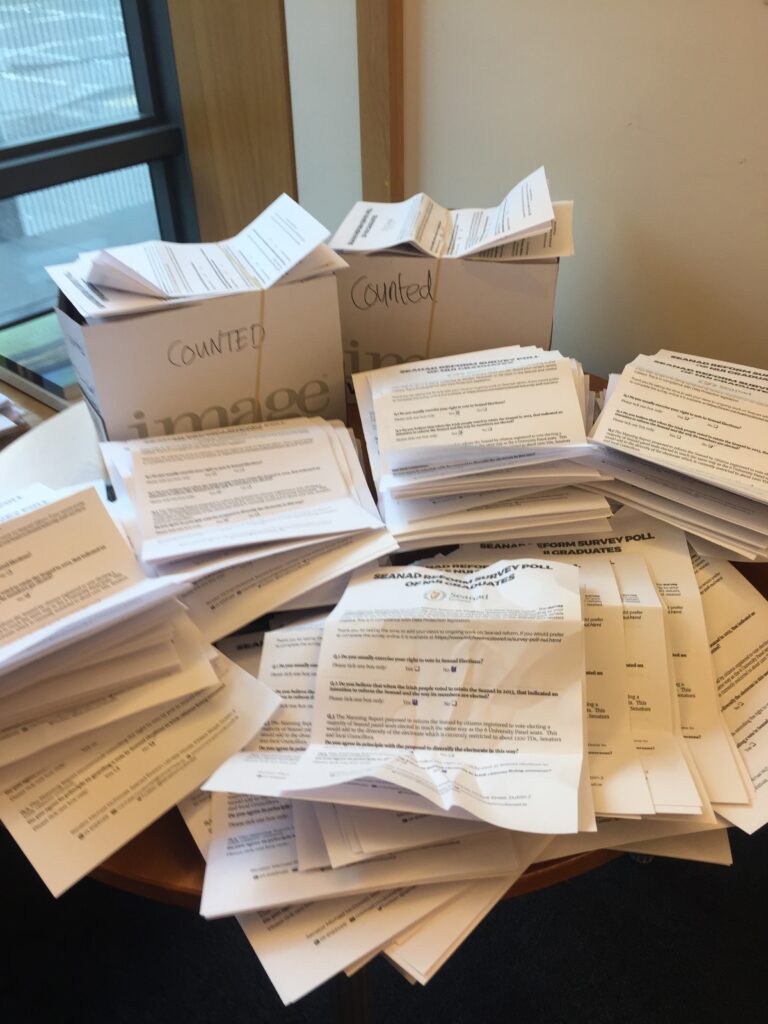In order to conduct a reliable survey of the views of NUI graduates on the issue of Seanad reform, I asked 40,000 NUI registered graduates to participate in a survey by post or email in late 2019. Just over 7000 took the time to respond which I am advised is a very high response rate to surveys of this kind. Indeed the volume of responses required me to engage additional secretarial assistance to collate the results over a number of weeks. The collation of results took place during January of this year and a very significant number of respondents indicated their willingness to be informed of the results. I am accordingly publishing the survey results.
The questions in the survey were as follows and the responses were as set out below.
Q.1 Do you usually exercise your right to vote in Seanad elections?
Yes 92.9% No 7.1%
Q.2 Do you believe that when the Irish people voted to retain the Seanad in 2013, that indicated an intention to reform the Seanad and the way its members are elected?
Yes 85.7% No 14.3%
Q.3 The Manning Report proposed to reform the Seanad by citizens registered to vote electing a majority of Seanad Panel seats. This would add to the diversity of the electorate which is currently restricted to about 1200 TDs, senators and local councillors.
Do you agree in principle with the proposal to diversify the electorate in this way?
Yes 90.7% No 9.3%
Q.4 The Manning Report recommends extending the right to vote by post in Seanad elections to Irish citizens overseas. Do you agree in principle in granting a vote in Seanad elections to Irish citizens living overseas?
Yes 48.2% No 51.8%
In summary:
- the more than 7000 respondents were overwhelmingly persons who usually exercised their right to vote (92.9%).
- 85.7% of respondents believed that the vote to retain the Seanad indicated a wish to reform it and the way its members were elected.
- The principles of The Manning Report were overwhelmingly endorsed (90.7%). Interestingly, however, a narrow majority (51.8%) opposed extending the right by post to Irish citizens overseas.
This last result certainly raised questions about the prospects of extending the franchise in presidential or parliamentary elections to expatriate Irish citizens.
I am deeply grateful to all who took part in the survey, the results of which greatly strengthen the hand of those who favour reform of the Seanad and its electoral system so as to widen the Seanad franchise to include every citizen resident in Ireland.

